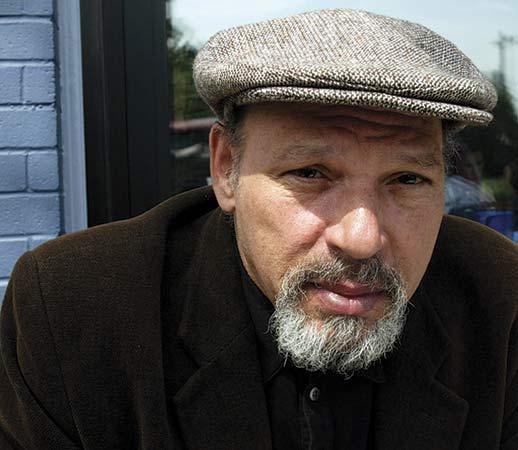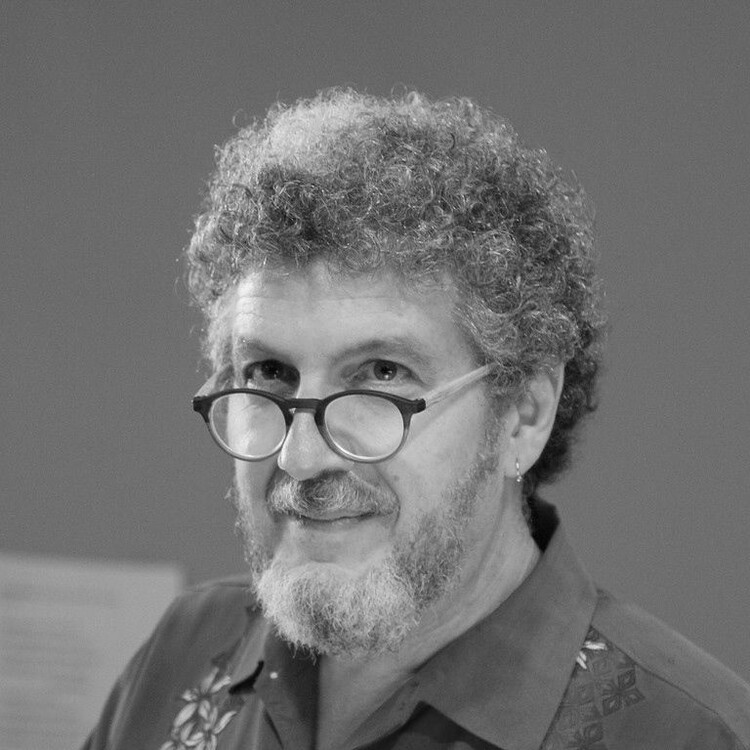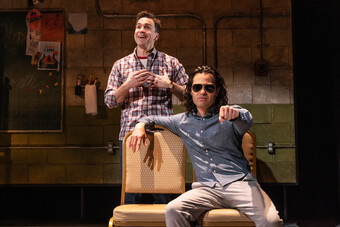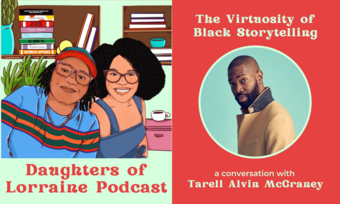A Lover’s Guide to American Playwrights
August Wilson
A Lover's Guide to American Playwrights is a regular column by Todd London. It is part of an ongoing series of tributes to contemporary playwrights. Mostly begun as speeches at New Dramatists—for career achievement awards, to mark the end of seven-year residencies, or, in a few cases, as eulogies—these portraits celebrate the body of work, lives, and singular gifts of those brave, ferocious, foolhardy souls of those who write plays for the American theater.
August Wilson
Sometimes the world gets its right; sometimes the right people get celebrated for the right reasons. Sometimes artists come along whose talent matches their ambitions. When they do, their example encourages other artists to value their own gifts—their songs, to use August Wilson’s word. This example emboldens others to take great risks in the belief that their grasp can match their reach.
Sometimes even the American theater gets it right—as it did with August Wilson. Sometimes our community, our industry, overcomes its cowardice, its aversion to the new and unknown, its love affair with the one-shot, and—as it did once upon a time with August Wilson—invests in an artist over the long haul, invests in a body of work.

I wish that every playwright I know could share the path August cut through the American theater, a path that is surely the most extraordinary convergence in our national theater history. The O’Neill, New Dramatists, the Playwrights’ Center, Yale Rep, Penumbra, Seattle Rep, The Goodman, The Huntington, and a constant constellation of regional theaters, even Broadway itself—none of these places gave him talent or hunger or ambition, but they joined impossibly together in a collective belief in his gift, anteing up with human, creative, professional, and artistic support. Even our champions need people to champion them; even our groundbreakers need friends to help them pave the new roads.
There’s so much to honor, so many staggering accomplishments. I’d like to honor another August Wilson, too—a writer of staggering potential. Another August, another year, another place. It’s the early ‘80s, and he’s staying in a room in Seventh Heaven, what we call the third floor of the old church that houses New Dramatists. It’s one of the Spartan, monk’s-cell dorm rooms we keep for our out-of-town playwrights. And in that room at that time that August Wilson is writing a play. It’s called Mill Hands Lunch Bucket, after a Romare Bearden painting. At some point, there or elsewhere, he crosses out the words “Mill Hands Lunch Bucket,” and replaces them with “Joe Turner’s Come and Gone.”
Or maybe he’s reading under a tree in summer in Waterford, Connecticut, or smoking out in front of the Playwrights’ Center in Minneapolis, any of his usual haunts, where the image of solitary writer is belied by the warm, chatty camaraderie of these busy playwright hives.
“What are you working on, August?” someone asks.
“I’m writing a ten-play cycle, one play for each decade of the twentieth century. It’ll encompass slavery, the African Diaspora, the migration of five million blacks to the north, and the lives of Africans in America against the backdrop of our evolving culture. One character is as old as slavery; she’ll die at 287. They’re meant to be performed at every theater in the country and then on Broadway.”
“Cool,” says the other playwright, who then proceeds to spin an equally improbable, grandiose, world-changing scheme, concluding with, “Can you come to my reading on Monday? It’ll be six hours long. We’ll read Act II another day.”
And August might respond with, “Cool,” another way of saying “yes,” the word we prize above all others in the land of playwrights. “yes is a world,” writes e.e. cummings, “& in this world of yes live (skilfully curled) all worlds.”
By celebrating this earlier August—the one with so many worlds still skilfully curled inside—we celebrate every master playwright in posse. By honoring this earlier August, at the typewriter, searching for the “healing song” and the “binding song” that his plays offer for so many of us, we honor every playwright setting out or halfway home, every playwright.
I wish that every playwright I know could share the path August cut through the American theater, a path that is surely the most extraordinary convergence in our national theater history.
We wish for them what we wished for him: We want them to be seen as they are and as they can be: artists with improbably vast worlds inside of them. We want their songs heard and their gift of tongues valued. We want them to define the future and inspire the future’s future. And we want the American theater to do right by them, lovingly, play after play, for the long haul.
Of the many things I love about the late August Wilson’s work, I value most how clearly he saw what is—the damage our ever-present history does and has done. I value how—while remembering holocaust and horror—he never lost sight of strength, joy, and resilience, what he called “the highest possibility of human life.” And I deeply value how every soul and every image lives in the complex web of that humanity—body, mind, heart, and spirit.
And while I can only marvel along with everyone else about the sweep and magnitude of his epic project, I also relish the details—the carvings in the piano—all his beautiful specificities. I think, for instance, about the things August’s characters carry, the objects they hold. Levee’s horn, Troy’s baseball bat, King Hedley’s seeds and his determination to grow them in rocky soil, Floyd’s guitar, Solly’s walking stick with a notch for every slave he conducted to safety. And with these life-giving objects, they hold others—the machete, the gun, the knife, and all the money that changes hands—the necessary and talismanic cash.
I value most how clearly he saw what is—the damage our ever-present history does and has done.
For each thing they carry, we glimpse a truth they hold to be self-evident—their right to freedom; their connection to ancestry, its sufferings and its gods; their determination to survive; their possession of a moral law that runs deeper and truer than man’s laws.
There is never a good time to lose an artist-leader like August, certainly there is never a good time to lose one so young (he was just sixty). He saw the premiere of Radio Golf, the final play of his Century Cycle, at Yale in April of 2005 and died that October. It was a tough and disturbing historical moment, nationally and on the world stage, a time to rage at the violence of power. The cowboys were in charge and they were running roughshod over the sacred lands, including our own.
As Nobel laureate Joseph Brodsky has written, “Cowboys loathe mirrors.” It inconveniences them to hear the cry of “the world’s future, and to recognize it…as a chasm suddenly gaping in the human heart, to swallow up honesty, compassion, civility, justice…”
In dark times (maybe times are always dark) we especially needed artists like Wilson, with his profound ability to be mirror, to hear the cry, and to keep his heart open and spirit engaged. (Maybe we always especially need artists like him, need mirror, need to hear the cry with open heart and engaged spirit. Now we need him, now and tomorrow and tomorrow.)
I’ll never forget the scene in August’s penultimate play, The Gem of the Ocean, in which the young Citizen Barlow is handed a paper boat, called the Gem of the Ocean. The boat he holds carries him, mythically and magically out to sea, to a city at the bottom of the sea—the City of Bones. It is a beautiful, gleaming city, built from the bones of the dead, the slaves who died in middle passage. This is the way August carries us, magically and mythically, showing us beauty from bone, life from devastation, humanity from the greatest evil. His mysteries are our maps, our way back and our journey forward. We need them and we need him.
I can feel the space where he stood. I can feel the missing connections that we, as a field, forged to make the great network that sustained him through that grand achievement. That achievement is complete, but it’s also left an ache for what comes after. I miss his next play, and his next.














Comments
The article is just the start of the conversation—we want to know what you think about this subject, too! HowlRound is a space for knowledge-sharing, and we welcome spirited, thoughtful, and on-topic dialogue. Find our full comments policy here
Thanks so much Todd - for remembering the early August, as well as the August that we reflect on now. Grateful to be reminded that we do get it very VERY right sometimes, but also grateful to remember that getting it right is a long process: it asks something of us and offers rewards beyond measure!
I taught FENCES every semester for xxxxxxx years and it never failed to move my students or to show me new things. Absolutely, Todd.
Thank you, Todd. One of my most challenging roles was Rose in FENCES. August was there for it, and made a special trip backstage to tell me he could see what I was doing, and appreciated it. Yes, as with all artists, he had flaws, but his value in world drama is assured. Your tribute calls me to note August Wilson's graciousness and kindness not only with me, but at other events I was privileged to be a part of. During the responses to his Ground On Which I Stand speech, he was thoughtful and stood for an ongoing look at the topic of African American theater. One consolation for our loss are the doors left wider open by his presence amongst us.
I felt such a connection to August, I think so many did. He was accessible and generous and he knew exactly who he was. He was a playwright, a poet, a leader and a good man. I have met few people as strong, as brave and as open-hearted. I love that his plays contain incredible moments of truth and beauty and also have flaws. He took risks and he put his heart on the page every time. His work reveals he was not a navel-gazer, but a truth-seeker and a man who held people accountable. I am sorry for our collective loss and I am grateful he lived and wrote. Thanks Todd for such a loving tribute.
A gorgeous tribute to one of the crown jewels of the American (no, the world) theatre.
Beautiful tribute to one of my favorites.
I miss his next plays too. Thank you, Todd London, for such a vivid piece. For a few moments it felt as if he was back among us all.